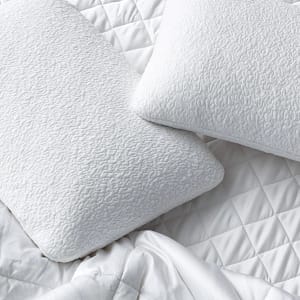Defining sleep quality isn’t straightforward, as it varies among individuals. Rather than a universal standard, people often determine what is “quality” sleep based on their lifestyles and preferences. Factors like sleep disturbances, bedroom environment, and daytime habits play a role in this assessment.
Being well-rested and restored once you wake up is a daytime indicator of perceived sleep quality. It’s crucial to note that sleep quality and quantity are distinct; one can sleep for an extended period but still experience disturbed sleep, emphasizing the importance of good sleep hygiene for both aspects.
Why Is It Essential To Get Quality Sleep?
Quality sleep is essential, similar to basic needs like breathing and eating. It reduces daytime sleepiness and significantly contributes to mental and physical well-being. Sleep is crucial for growth, with varying needs across age groups.
Poor sleep quality and deprivation have diverse adverse effects, increasing the risk of health issues and psychological challenges. Moreover, inadequate sleep poses safety risks, impacting activities like driving.
Factors That Can Affect Sleep Quality
Several factors can impact sleep quality, and neglecting good sleep hygiene is a significant contributor. Key influences include:
- Irregular sleep schedule: Maintaining a proper sleep schedule can improve your health.
- Sleeping environment: A quiet, dark bedroom devoid of excessive light promotes better sleep. Avoiding blue light from electronics before bedtime is crucial. To avoid blue lights, try the Ocushield Anti Blue Light Glasses.
- Caffeine and alcohol: Excessive consumption can disrupt both falling asleep and staying asleep.
- Drugs: Certain medications, including diuretics, may increase the need to use the bathroom at night. Sleep aids, whether over-the-counter or prescription, can cause daytime sleepiness.
- Snoring: Excessive snoring, possibly indicating obstructive sleep apnea, can impact sleep quality for both the individual and their partner. If you have sleep apnea, you should definitely try Bergamot Sleep Breathing.
- Sleep disorders: Conditions like insomnia, narcolepsy, and frightening dreams can lead to poor sleep quality.
- Mental health disorders: Depression and anxiety often coexist with insomnia, contributing to racing thoughts and difficulty relaxing at night.
- Miscellaneous factors: Diet, daytime exercise, travel, and various pains or illnesses can also influence sleep quality.
Ways To Calculate Your Sleep Quality
Calculating By Yourself At Home
To assess your sleep quality at home, consider the following questions about your sleep habits:
- Time to Fall Asleep: Regularly taking over 30 minutes to fall asleep may indicate poor sleep on the Insomnia Severity Index.
- Time Asleep in Bed: Spending less than 85% of your time in bed sleeping suggests poor sleep efficiency.
- Wake-ups During Sleep: For quality sleep, it should take less than 20 minutes to fall back asleep.
Maintaining a sleep diary can be beneficial. Record your sleep patterns, waking habits, and daytime activities. This diary will help you identify personal factors affecting your sleep. Adjusting habits based on your observations or sharing them with your doctor can provide valuable insights and professional guidance.
Calculating Professionally
If you’re struggling with sleep quality, taking steps to create a sleep-friendly environment and adopting good daytime habits can be beneficial. If issues persist, seeking professional advice is crucial. Professionals evaluate sleep quality using methods such as sleep studies and tools like the Pittsburgh Quality Sleep Index (PSQI).
Pittsburgh Quality Sleep Index (PSQI).
The PSQI involves self-rated responses to questions in seven categories, covering aspects like sleep quality, disturbances, and daytime dysfunction. Professionals analyze these responses to guide strategies for improving sleep quality.
For suspected sleep disorders like sleep apnea or narcolepsy, specific tests may be conducted, including polysomnography for overnight observation, multiple sleep latency tests, and maintenance of wakefulness tests. Additionally, evaluations of the liver, heart, and lungs may be performed.
While these tests provide valuable data and observations about sleep, it’s essential to note that sleep quality is primarily self-evaluated. These assessments can uncover irregularities in sleep behavior that may contribute to overall poor sleep quality, guiding further interventions.
Looking to improve sleep quality? Join the “Wonderwise 2 Week Sleep Challenge” for developing habits that improve sleep quality. Looking to buy devices and sleep trackers to monitor sleep, but not sure which one is right for you? Ask Wonderwise for free on WhatsApp. Click to Chat.
